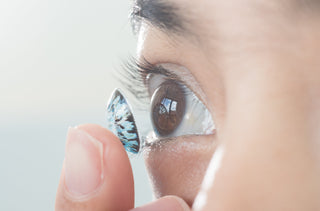Today, more than ever, our lives are bathed in artificial light. Blue light has become ubiquitous in our daily lives, whether it's the bluish glow of our computer screens, televisions or smartphones. What are the effects of this exposure to blue light on our health and well-being, particularly at night?
Understanding blue light
Blue light is part of the light spectrum visible to the human eye. It is emitted naturally by the sun but is also produced by many artificial sources, including LED bulbs and electronic screens. What makes it particularly disruptive is its short wavelength and high intensity.
Impact on circadian rhythm
Our bodies are set on a circadian cycle, an internal biological clock that regulates our sleep and wake cycles over approximately 24 hours. Light plays a crucial role in regulating this cycle. When we are exposed to blue light in the evening, especially late at night, it disrupts the production of melatonin, a hormone that helps regulate sleep.
Studies have shown that exposure to blue light at night can suppress melatonin production, making it harder to fall asleep and potentially disrupting sleep quality. This can lead to long-term health problems, such as sleep disorders, chronic fatigue, and even an increased risk of cardiovascular and metabolic diseases.
Impact on eye health
In addition to its effect on sleep, blue light can also have adverse effects on eye health. Prolonged exposure to blue light, particularly from digital screens, can contribute to eye fatigue, dry eyes and even long-term vision problems.
Prevention and solutions
Fortunately, there are ways to reduce the harmful effects of blue light exposure at night:
- Limit exposure before bedtime: Try to limit your exposure to blue light at least an hour before going to bed. This can mean turning off computer, phone and TV screens or using blue-light filters on these devices.
- Use blue light filters: Eyeglass lens coatings and electronic devices now come with night modes or built-in blue light filters. Activate them to reduce the intensity of the blue light emitted by these devices.
- Opt for appropriate lighting: Use warm-light bulbs rather than white LED bulbs, especially in bedrooms. This can help reduce exposure to blue light before bedtime.
- Create a sleep-friendly environment: Ensure your bedroom is dark and cool to promote quality sleep. Also, avoid using electronic devices in bed.
Although blue light may be unavoidable in our modern society, understanding its effects on our health and taking steps to reduce our exposure at night can significantly impact our overall well-being. By adopting good habits and using available technological solutions, we can better protect our sleep and eye health in the long term.





















































